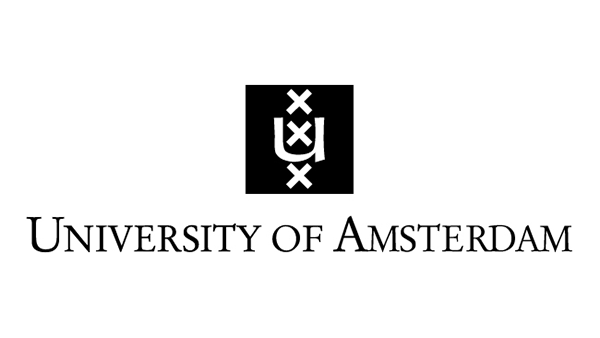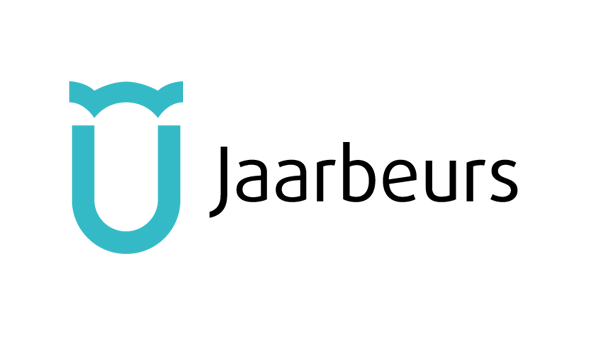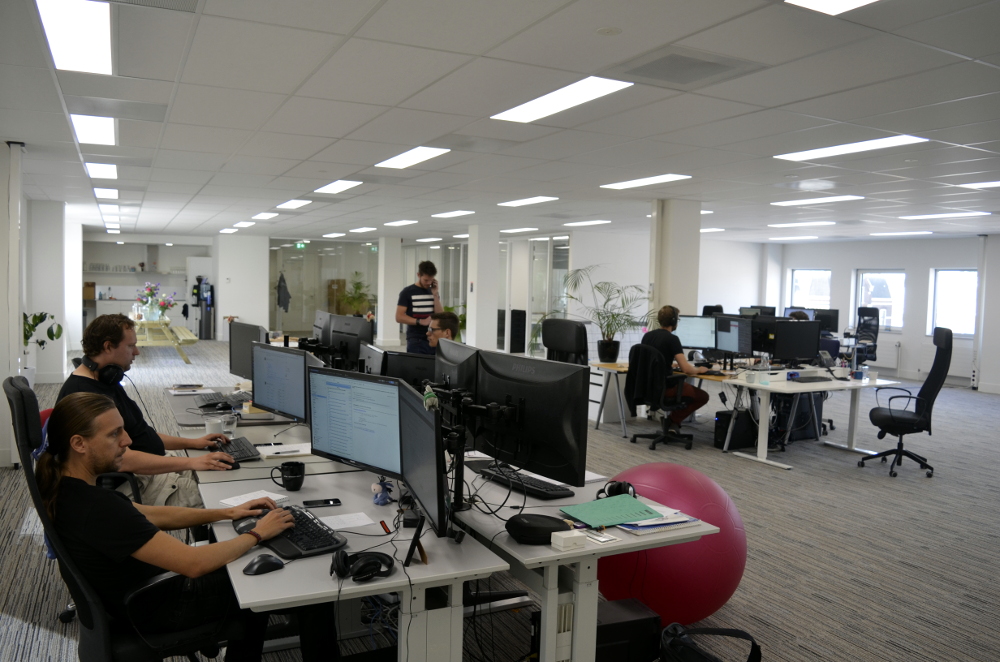
What we do
Delft Congress Support is an independent support organization for scientific conferences and educational events. Operating since 2008, Delft Congress Support has provided content consulting, logistics, management and administrative services, IT-services and marketing support for over 2700 events. Key to our approach is that we work in a unique partnership-model with event creators to host events that excel in:

Learning First

Extended Involvement

Courtesy and Hospitality

Efficiency
Delft Congress Support only hosts events with knowledge-transfer as a first priority. Most of our work is in academic conferences and business education (continuous learning).
We believe that knowledge transfer is most successful when participants are well prepared before the event and learning is supported for an extended time after the event. Our approach uses unique tools to facilitate delegate knowledge discovery and structuring in the preparatory period and reinforcement afterwards.
While events are short in person meetings for delegates, the event is also the highlight of extended delegate interactions while of working together remotely and communicating electronically. We believe that a host's courtesy and hospitality are paramount to making all interactions enjoyable and memorable.
Our mission is to apply the most efficient tools and processes to all aspects of the event experience. Efficiency everywhere is crucial in achieving our goals of Learning First, Extended Involvement and Courtesy and Hospitality.
How we work
Wherever we have the opportunity to educate the world, whenever we can support knowledge transfer and wherever we can make a lasting change in the way people think Delft Congress Support is ready to engage.
Working together with knowledge providers we build a comprehensive content based knowledge dissemination event concept. An academic conference, e-learning, seminar or workshop with an extended involvement for delegates are designed from the ground-up.
References

University of Amsterdam
For the University of Amsterdam we have provided consulting services and software systems to support academic abstract handling, registration and administrative services as well as participating in hosting numerous events.

Jaarbeurs Utrecht
Working together with Jaarbeurs Utrecht since 2015 has been a delight for Delft Congress Support. Many new events focused on professional eduction are key to a new content-based strategy for this most famous venue in the Netherlands. We are very proud of our role in making this possible.

Reed Business Information
Reed Business Information is a large business education provider in the Netherlands. Delft Congress Support has been able to provide an extensive solution for administrative services that has been integrated with existing back-end systems.

Delft University of Technolgy
Delft is where Delft Congress Support started. Delft is also where most of the events we are involved in are hosted. We have extensive knowledge of the available facilities and a natural affinity for the higly technical nature of Delfts events. Since 2008 hundreds of workshops, conferences and seminars have been organized with us.
Contact
| Email: | info@delftcongress.com |
| Phone: | +31 (0)15 2400119 |
| Address: | Delft Congress Support B.V. Phoenixstraat 28b 2611 AL Delft The Netherlands |
| KvK number: | 62789015 |
| BTW/vat number: | NL854957467B01 |
| Bank account bunq: | |
| IBAN: | NL88 BUNQ 2207 9497 29 |
| BIC/SWIFT code: | BUNQNL2A |
| Bank account ING: | |
| IBAN: | NL51 INGB 0006 9006 52 |
| BIC/SWIFT code: | INGBNL2A |

How we work
Wherever we have the opportunity to educate the world, whenever we can support knowledge transfer and wherever we can make a lasting change in the way people think Delft Congress Support is ready to engage.
Working together with knowledge providers we build a comprehensive content based knowledge dissemination event concept. An academic conference, e-learning, seminar or workshop with an extended involvement for delegates are designed from the ground-u p.
After concept-creation has been finalized we bring in our extended tool-chain to support all administrative procedures of the event. Via online services we support e-learning, abstract submission and reviewing, registration and accounting. Working together with the content creators, scientific committee and chair we make sure that all the logistic processes for all parties are taken care of.
Events are multi-faceted collaborations between delegates, content creators, hosts, logistics and facilities providers. Each of these parties has a unique position in the event ecosystem and Delft Congress Support manages and supports each of them with our comprehensive event management system balancing interests to create maximum value for all involved.
In the run-up to the event the focus shifts to marketing the event and its content value. Our event marketing solutions involve web-based promotions, content marketing as well as targeted email messaging. Building upon extensive statistics from thousands of previous events we can provide the most effective marketing triggers for the event proposition. These statistics also provide us with early insight into the final scale of the event which allows us to source to most efficient application of local event resources and facilities providers.
During the event Delft Congress Support provides a high level of situational awareness in the logistical processes involved for content providers. We also provide onsite services regarding registration, badging and coordination. We believe that efficient registration provides certainty regarding presence of all persons involved. This is key to maintaining a superb event safety and security record. Furthermore efficiency in onsite processes is crucial in achieving our goals of Learning First and Courtesy and Hospitality.
After the event we apply an extensive follow-up process to reinforce the event purpose. Via e-learning and an integrated suite of extended learning opportunities we provide delegates the opportunity to stay up-to-date with the information provided. We also use Extended Involvement as a way to stay in contact with delegates to update our own knowledge of the field and share our own learning process.
General Terms and Conditions of Organiser
Version
2015-1Definitions:
- Supplier:
- The private company with limited liability, Delft Congress Support B.V. - Chamber of Commerce number 62789015, having its registered office in Delft and principal place of business in Delft at Phoenixstraat 28b (2611AL).
- Commissioning Party:
- The party (organiser) who makes use of the goods or services provided by the supplier.
- Offer:
- The offer from the Supplier to the Commissioning Party.
Terms and conditions
-
Applicability of General Terms and Conditions
-
These General Terms and Conditions apply to all agreements under which Delft Congress Support provides goods and/or services of any nature whatsoever and under any name whatsoever to the Commissioning Party.
-
Departures from and additions to these General Terms and Conditions will only be valid if agreed between the parties in writing.
-
The applicability of any purchasing or other terms and conditions of the Commissioning Party is expressly rejected.
-
If any provision of these General Terms and Conditions is null and void or is voided, the other provisions of these General Terms and Conditions will remain fully in effect. The Supplier and the Commissioning Party shall in such circumstances consult each other in order to agree on new provisions to replace the null and void or voided provisions, observing as much as possible the purpose and meaning of the null and void or voided provisions.
-
-
Offers
-
All offers and other communications by the Supplier are free of obligation, unless indicated otherwise by the Supplier in writing.
-
The Commissioning Party guarantees the correctness and completeness of the information made available by or on behalf of it to the Supplier, on which the Supplier bases its offer. The Commissioning Party shall at all times exercise the utmost care to ensure that the requirements that the performance of the Supplier must meet are correct and complete. The information stated is not binding on the Supplier, unless explicitly stated otherwise by the Supplier.
-
-
Pricing and payment
-
All prices are exclusive of turnover tax (VAT) and other levies that have been or will be imposed by the government. Unless otherwise agreed, all prices are stated in euros and the Commissioning Party must make all payments in euros.
-
All cost estimates and budgets provided by the Supplier are of an indicative nature only unless the Supplier states otherwise in writing. No rights or expectations may ever be derived by the Commissioning Party from a cost estimate or budget provided by the Supplier. Any available budget made known by the Commissioning Party to the Supplier shall never be considered to be a fixed price agreed between the parties for the performance to be delivered by the Supplier. Only if agreed between the Parties in writing is the Supplier obliged to inform the Commissioning Party of any potential overrun of a cost estimate or budget provided by the Supplier.
-
If the Commissioning Party consists of several natural persons and/or legal entities, each one of those persons or entities is jointly and severally bound to pay the amounts due under the agreement.
-
With respect to the performance delivered by the Supplier and the resulting amounts owed by the Commissioning Party, the relevant documents and information from the Supplier's records or systems shall furnish complete proof, notwithstanding the Commissioning Party's right to furnish proof to the contrary.
-
If the Commissioning Party has a periodic payment obligation, the Supplier is entitled to adjust the current prices and rates subject to a period of notice of at least three months and in writing. If the Commissioning Party does not wish to agree to such an adjustment, the Commissioning Party is entitled, within thirty days of notification, to terminate the agreement in writing as of the date the adjustments would have entered into effect. The Commissioning Party is not entitled to such right of termination if the Parties have agreed that the current prices and rates are to be adjusted subject to an index or other standard agreed between the Parties.
-
The Parties will set out in the agreement the date or dates on which the Supplier charges the Commissioning Party for the agreed performance. The amounts due shall be paid by the Commissioning Party in accordance with the payment conditions agreed or stated on the invoice. In the absence of a specific arrangement, the Commissioning Party will pay within a term determined by the Supplier after the invoice date. The Commissioning Party is not entitled to any suspension of payment or to any offsetting of amounts due.
-
If the Commissioning Party fails to pay the amounts due or fails to pay them on time, the Commissioning Party shall owe statutory commercial interest over the amount due, without any need for a reminder or notice of default. If, after a reminder or notice of default, the Commissioning Party fails to pay the amount due, the Supplier may pass on its claim to a collection agency, in which case the Commissioning Party will be obliged to pay all judicial and extrajudicial costs, including all costs calculated by external experts, in addition to the total amount owed.
-
-
Confidentiality
-
The Commissioning Party and the Supplier shall ensure that all information received from the other party which they know or may reasonably be expected to know to be of a confidential nature remains confidential. The party receiving the confidential information shall only use this for the purpose for which it was provided. Information will in any event be deemed confidential if it has been specified as such by one of the parties.
-
-
Privacy, data processing and security
-
If the Supplier considers it important for the implementation of the agreement, the Commissioning Party will immediately inform the Supplier on request and in writing of the manner in which the Commissioning Party exercises its obligations pursuant to legislation on the protection of personal data.
-
The Commissioning Party indemnifies the Supplier against any claims from persons whose personal data has been registered or is processed within the framework of a registration of personal data kept by the Commissioning Party or for which the Commissioning Party is otherwise responsible pursuant to the law, unless the Commissioning Party proves that the facts underlying the claim can be attributed to the Supplier only.
-
The responsibility for the data processed using a service provided by the Supplier lies solely with Commissioning Party. The Commissioning Party guarantees to the Supplier that the contents, use and/or processing of the data are not unlawful and do not infringe upon any third party right. The Commissioning Party indemnifies the Supplier against any third party legal claim, for whatever reason, in connection with this data or the implementation of the agreement.
-
If the Supplier is obliged, on the grounds of this agreement, to provide a form of information security, this security shall meet the specifications regarding security as agreed in writing between the parties. The Supplier is never responsible for the information security being effective in all circumstances. If information security is not expressly described in the agreement, the security shall meet a level not unreasonable in view of the state of technology, the sensitivity of the data and the costs involved in making the security arrangements.
-
IIf, in the implementation of the agreement or otherwise, any computer, data or telecommunication facilities are used, the Supplier is entitled to provide access or identification codes to the Commissioning Party. The Supplier is entitled to change any access or identification codes provided. The Commissioning Party will treat the access and identification codes as confidential and with care and will only disclose these to authorised staff. The Supplier is never liable for loss or costs arising from the use or abuse of access or identification codes, unless the abuse was possible as a direct result of an act or omission by the Supplier.
-
Data as referred to in this article is saved for a maximum of 12 months.
-
-
Reservation of title and rights, specification and suspension
-
All items provided to the Commissioning Party remain the property of the Supplier until the amounts owed by the Commissioning Party to the Supplier on the grounds of the agreement entered into by the parties have been paid in full to the Supplier.
-
Rights, including rights of use, are granted or transferred where applicable to the Commissioning Party on the condition that the Commissioning Party has paid in full the payments due under the agreement entered into by both parties. If the parties have agreed on a periodic payment obligation by the Commissioning Party for granting a right of use, the Commissioning Party in entitled to the right of use as long as it meets its periodic payment obligation.
-
The Supplier may, within the framework of the agreement, retain items received or generated, products, property rights, information, documents, software, data files and results or interim results of the service by the Supplier despite an existing obligation to surrender or transfer these until the Commissioning Party has paid the Supplier all the amounts due.
-
-
Risk
-
The risk of loss, theft, misappropriation or damage of items, products, data, documents, software, data files or information (codes, passwords, documentation, etc.) created or used in the context of implementation of the agreement passes to the Commissioning Party at the moment they are actually put at the disposal of the Commissioning Party or of an auxiliary person deployed by the Commissioning Party. Insofar as these objects are at the actual disposal of the Supplier or auxiliary persons deployed by the Supplier, the Supplier bears the risk of loss, theft, misappropriation or damage.
-
-
Intellectual property rights
-
If the Supplier is willing to undertake the transfer of an intellectual property right, such a commitment can only be undertaken expressly and in writing.
-
All intellectual property rights to software, websites, data files, equipment or other materials such as analyses and designs developed or made available to the Commissioning Party on the grounds of the agreement are held exclusively by the Supplier, its licensors or their suppliers. The Commissioning Party only acquires the rights of use which are expressly granted by these General Terms and Conditions and by law. A right of use accruing to the Commissioning Party is exclusive and non-transferable to third parties.
-
-
Obligation to cooperate
-
The parties acknowledge that the success of work in the field of information and communication technology is generally dependent on a correct and timely mutual cooperation. To enable proper implementation of the agreement by the Supplier, the Commissioning Party shall provide the Supplier at all times with all data or information considered by the Supplier to be useful, necessary and desirable, and shall render full assistance.
-
The Commissioning Party bears the risk of the selection, use, application and management in its organisation of the equipment, software, websites, data files and other products and materials and of the services to be provided by the Supplier. The Commissioning Party itself ensures that the equipment, software, websites, data files and other products and materials are installed, fitted and put into use correctly and with the correct settings.
-
If, for the implementation of the agreement, use is made of computer, data or telecommunication facilities including the internet, the Commissioning Party is responsible for the correct choice of the necessary means and for the timely and full availability thereof, except for those facilities under the direct control or management of the Supplier. The Supplier is never liable for loss or costs arising from transmission errors, disruptions or non-availability of these facilities, unless the Commissioning Party proves that this loss is or these costs are the result of intent or deliberate recklessness on the part of the Supplier's management.
-
-
Delivery terms
-
All delivery terms and delivery dates stated by or agreed with the Supplier have been established to the best of its knowledge on the grounds of the information known to the Supplier at the time the agreement was entered into. Interim delivery dates stated by the Supplier or agreed by the parties are always considered to be target dates, are not binding on the Supplier and are only of an indicative nature. The Supplier shall endeavour to observe in all reasonableness the final delivery terms and final delivery dates insofar as possible. The Supplier is not bound to a final delivery term or final delivery date which cannot be met because of circumstances outside its control occurring after the agreement was entered into. Nor is the Supplier bound to a delivery date or delivery term, final or otherwise, if the parties have agreed to an adjustment of the content or scope of the agreement (additional work, change to specifications, etc.) or to an adjustment of the implementation method of the agreement. In the event any term threatens to be exceeded, the Supplier and the Commissioning Party shall consult each other to discuss the consequences of the overrun for the further planning.
-
The mere exceeding of a delivery term or delivery date, final or otherwise, stated by the Supplier or agreed by the Parties does not render the Supplier in default. In all cases - therefore also if the parties have agreed expressly and in writing to a final delivery term or date - the Supplier is only in default due to exceeding the deadline after the Commissioning Party has given written notice of default. The notice of default must contain a complete and as detailed a description as possible of the failure so that the Supplier has the opportunity to respond adequately.
-
-
Termination and cancellation of the agreement
-
Each party is only authorised to terminate the agreement due to a breach of contract in the event that the other party still fails to meet its essential obligations under the agreement after a proper and as detailed as possible written notice of default has been served, giving a reasonable period within which to remedy the failure. The Commissioning Party's payment obligations and all other obligations of the Commissioning Party or a third party to be engaged by the Commissioning Party to cooperate are considered to be essential obligations under the agreement.
-
If the Commissioning Party, at the time of termination as referred to in article 11.1, has already received performance in the implementation of the agreement, this performance and the corresponding payment obligation will not be subject to undoing unless the Commissioning Party proves that the Supplier is in default regarding an essential part of that performance. Amounts invoiced by the Supplier before the termination for that which the Supplier has properly performed or delivered pursuant to the agreement, continue to be fully due, subject to the provisions of the previous sentence, and become immediately due and payable at the moment of termination.
-
If an agreement for an unspecified period does not end through completion of the engagement because of its nature and content, it can be cancelled by each party in consultation and on stating reasons in writing. If no notice period has been agreed between the parties, a reasonable notice period must be observed on termination. The parties will never be bound to any compensation due to termination.
-
The Commissioning Party is never entitled to terminate an agreement for services or a commission entered into for a fixed term before the end of that term.
-
Each party may terminate the agreement in writing with immediate effect, without judicial intervention and without notice of default, in whole or in part, if the other party is granted a suspension of payment, provisional or otherwise, if bankruptcy proceedings are instituted against the other party, if the company of the other party is being wound up or terminated other than for the reconstruction or merger of companies, or if the decisive control over the Commissioning Party's company changes. The Supplier is never obliged to any refund of monies received or to payment of damages because of this termination. In the event of bankruptcy of the Commissioning Party, the right to use software, websites and such made available to the Commissioning Party lapses by operation of law.
-
-
Liability of the Supplier
-
The total liability of the Supplier due to an imputable failure to comply with an obligation under the agreement or on any other basis, expressly including every breach of contract of a warranty obligation entered into with the Commissioning Party is limited to the amount paid out by the general insurance. (if applicable, to be increased with the Supplier's excess). If the insurer does not pay out, for whatever reason, the liability is limited to the invoice amount of the Supplier's last invoice (excl. VAT.) geliquideerd
-
The Supplier's liability is excluded for indirect loss, consequential loss, loss of profits, lost savings, reduced goodwill, loss caused by business interruption, loss as a result of claims from the Commissioning Party's customers, loss relating to the use of goods, materials or software of third parties prescribed by the Commissioning Party to the Supplier, and loss relating to the engagement of suppliers prescribed by the Commissioning Party to the Supplier. Likewise the Supplier's liability is excluded due to corruption, destruction or loss of data or documents.
-
Unless performance by the Supplier is permanently impossible, liability of the Supplier arises because of a breach of contract only if the Commissioning Party immediately gives the Supplier a written notice of default, in which a reasonable term is set to remedy the breach, and the Supplier continues to be in breach of contract after that term. The notice of default must contain a complete and as detailed a description as possible of the failure so that the Supplier has the opportunity to respond adequately.
-
A claim for compensation cannot be considered unless a written notice of the loss is given by the Commissioning Party to the Supplier as soon as possible. Every claim for compensation against the Supplier lapses by the mere expiry of 1 month after the occurrence of the loss or damage.
-
The Commissioning party indemnifies the Supplier against all third-party claims resulting from a defect in a product or system supplied by the Commissioning Party to a third party and which consisted partly of equipment, software, websites, or other materials supplied by the Supplier, except if and inasmuch as the Commissioning Party can prove that the damage or loss was caused by said equipment, software or other materials.
-
The provisions of this article and all other restrictions and exclusions from liability stated in these Terms and Conditions apply also in favour of all persons and legal entities the Supplier makes use of in the implementation of this agreement.
-
-
Force majeure
-
Neither of the parties is held to fulfil any obligation, including any warranty obligation agreed between the parties, if prevented from doing so as a result of force majeure. Force majeure includes: (i) force majeure of the Supplier's suppliers, (ii) suppliers prescribed by the Commissioning Party to the Supplier not properly complying with their obligations, (iii) defective items, equipment, software or materials of third parties, the use of which is prescribed by the Commissioning Party to the Supplier, (iv) government measures, (v) electrical black-outs, (vi) failures of the internet, computer network or telecommunication facilities, (vii) war, (viii) staffing requirements, (ix) strikes, (x) general transport problems and (xi) the unavailability of one or more staff members.
-
If a situation of force majeure lasts longer than ninety days, each party is entitled to terminate the agreement in writing. In that event, that which has already been performed on the basis of the agreement is settled proportionally without the parties owing each other anything.
-
-
Adjustments and additional work
-
If the Supplier has performed work or delivered another performance at the request or with the prior permission of the Commissioning Party that falls outside the content or scope of what has been agreed, such work or performance will be paid for by the Commissioning Party to the Supplier in accordance with the agreed fees or in the absence of these, in accordance with the supplier's usual fees. However, the Supplier is not required to comply with such a request and can require that a separate written agreement be entered into in respect thereof.
-
The Commissioning Party accepts that the agreed or expected moment of completion of the service and the mutual responsibilities of the Commissioning Party and the Supplier may be influenced by the work or performance as referred to in this article. If additional work, or a demand for additional work, arises during the implementation of the agreement, this shall never constitute grounds for cancellation or termination of the agreement on the part of the Commissioning Party.
-
Insofar as a fixed price was agreed for the service, the Supplier shall inform the Commissioning Party on request in writing about the financial consequences of the additional work or performance as referred to in this article.
-
-
Services
-
The Supplier will provide the services agreed in writing between the parties to the Commissioning Party.
-
If it has been agreed that the service will take place in phases or if the Supplier's work method provides for a phase-by-phase approach, the Supplier is entitled to postpone the start of the service pertaining to a phase until the Commissioning Party has approved the results of the previous phase in writing.
-
Unless otherwise agreed, the Commissioning Party is responsible for the use of the service and the way in which the results of the service are used. The Commissioning Party is also responsible for the instruction of and use by users, irrespective of whether these users are in an authority relationship to the Commissioning Party.
-
-
Performance of services
-
The Supplier undertakes to perform the service with care, where applicable in accordance with the written agreements and procedures set down with the Commissioning Party. All the Supplier's services are performed on the basis of a best-effort obligation, unless and in as much as the Supplier has committed to a specific result in the written agreement and this result has been described in a sufficiently precise manner.
-
All equipment, software and items used by the Supplier for the service remain the property or intellectual property of the Supplier, including if the Commissioning Party pays the Supplier a fee for the development or purchase thereof.
-
If the Commissioning Party makes any software, hardware or other company resources in connection with the Supplier's service available to the Supplier, the Commissioning Party is responsible for obtaining the necessary licenses or approvals regarding the company resources which the Supplier may need.
-
-
Duration
-
The agreement is entered into for the duration agreed between the parties, failing which for the duration of one year. The duration of the agreement is tacitly extended each time for the duration of the original term, unless the Commissioning Party or the Supplier terminates the agreement in writing, observing a notice period of three months before the end of that period.
-
-
Payment
-
In the absence of an expressly agreed invoicing schedule, all amounts are due retroactively per calendar month. The Supplier may always request payment in advance.
-
Unless otherwise agreed, the amounts are due from the date of invoicing.
-
Should the participant, for whatever reason, cancel a purchase or take back/reverse a payment, the Supplier is entitled to settlement with the Commissioning Party without further notification or consultation with the Commissioning Party, or to charge this amount to the Commissioning Party. The Commissioning Party indemnifies the Supplier against loss resulting from the taking back/reversal of payments.
-
-
Rent and hire of ICT, telecommunication and computer equipment
-
The Supplier hires out to the Commissioning Party the ICT, telecommunication or office equipment as determined in the agreement, and the accompanying user documentation, hereinafter referred to as 'the equipment'.
-
Unless otherwise agreed in writing, the equipment rental does not include the provision of software and consumer items and consumables necessary for the use of the equipment. The consumer items and consumables include batteries, stamps, ink cartridges, toners, cables and accessories.
-
If the Commissioning Party is also provided with software necessary for the use of the equipment, the Supplier may request the Commissioning Party to enter into a separate license agreement for this software. Likewise, the Supplier may request the Commissioning Party to enter into a separate purchase agreement for any purchase of consumer items and consumables.
-
-
Prior inspection
-
If not provided for in the agreement between the parties, the Supplier may, by way of prior inspection and in the presence of the Commissioning Party, draft a report prior to or on the occasion of the provision of the equipment, describing the condition of the equipment and stating any established defects. The Supplier may require the Commissioning Party to sign the report describing the condition of the equipment drafted by the Supplier for approval before the Supplier makes the equipment available to the Commissioning Party. Unless otherwise agreed by the Parties, defects in the equipment stated in the report are for the account of the Supplier. On establishing any defects, the Supplier and Commissioning Party will agree in what way and within which timeframe the repair of the defects stated in the report will take place. If the parties have agreed that repairs should be carried out by or on account of the Commissioning Party, the repairs must be carried out properly and to the Supplier's satisfaction.
-
If the Commissioning Party, for whatever reason, does not properly cooperate with a prior inspection as referred to in the previous paragraph, the Supplier is entitled to carry out this inspection in the absence of the Commissioning Party and to draft said report itself. This report is binding on the Commissioning Party.
-
If no prior inspection is carried out, the Commissioning Party is deemed to have received the equipment in a good condition.
-
-
Duration of the rent
-
The rental agreement is entered into for the duration agreed between the parties, failing which for the duration of one year. The rent commences on the day the equipment is made available to the Commissioning Party. The duration of the rental agreement is each time tacitly extended for the period of the original term, unless the Commissioning Party or the Supplier terminates the agreement in writing, observing the notice period of three months before the end of that period.
-
On expiry of a rental agreement for a fixed term, the agreement ends without any notice of termination from the Supplier or Commissioning Party being required.
-
-
Use of the equipment
-
The Commissioning Party will use the equipment, always to the exclusion of third parties, in accordance with the intended purpose based on the rental agreement. The Commissioning Party is obliged to use the equipment solely in and for its own organisation or company. Use of the equipment by or on behalf of third parties is not permitted. The right to use the equipment is non-transferable. The Commissioning Party is not permitted to subrent the equipment to any third party or to give any third party the use or joint use of it in any form whatsoever.
-
Use will only be made of the equipment at the location agreed on between the parties, if applicable. The Commissioning Party itself will install, fit and make the equipment ready for use.
-
The Commissioning Party is not permitted to use or in any other way have available the equipment or any part thereof as security or collateral, in whatever way, towards a third party.
-
The Commissioning Party will use and keep the equipment carefully. The Commissioning Party will take timely and effective measures to prevent any damage to the equipment. In the event of any damage to the equipment, the Commissioning Party will immediately notify the Supplier in writing. The Commissioning Party is fully liable for damage to the equipment towards the Supplier and third parties affected by the damage.
-
-
Change in the condition of the equipment
-
The Commissioning Party is not permitted to change the equipment in whole or in part or to add anything to it without prior written approval from the Supplier.
-
The parties agree that defects regarding changes and additions to the equipment carried out or commissioned by the Commissioning Party and all defects arising from such changes or additions to the equipment are not considered defects within the meaning of Section 7:204 of the Dutch Civil Code. The Commissioning Party has no claim against the Supplier with regard to these defects. The Supplier is not held to repair or maintain these defects.
-
The Commissioning Party is liable to the Supplier for defects in the equipment relating to changes and additions made by the Commissioning Party.
-
The Commissioning Party has no claim to any compensation, in any connection whatsoever, relating to changes or additions made by the Commissioning Party to the rented equipment that, for whatever reason, have not been undone or removed at or after the end of the rental agreement.
-
-
Rent
-
Unless otherwise agreed in writing, the rent agreed between the parties is due at the start of the rent or, in the event of periodic rent instalments, at the start of a rental period.
-
Unless otherwise agreed in writing, the rent does not include payment for the provision of software and/or consumables.
-
The Commissioning Party will pay the Supplier the rent due in advance before or no later than on the first day of the rent or, in the event of periodic rent instalments, at the start of a rental period.
-
-
Maintenance of equipment
-
The Commissioning Party will not carry out maintenance on the equipment or have maintenance carried out on it by a third party.
-
The Commissioning Party will notify the Supplier immediately in writing of any defects to the equipment established by the Commissioning Party.
-
The Supplier will undertake to repair, by way of corrective maintenance, any defects to the equipment chargeable to the Supplier, within a reasonable period. The Supplier is furthermore entitled, though not obliged, to carry out preventive maintenance on the equipment. The Commissioning Party will enable the Supplier on request to carry out corrective and/or preventive maintenance. The Commissioning Party and the Supplier will consult each other in advance about the days and times the maintenance is to take place. During the maintenance period, the Commissioning Party is not entitled to alternative equipment.
-
The Supplier is always entitled to choose to dispense with the repair of defects and to replace the equipment with similar, but not necessarily identical, equipment.
-
The Supplier is never obliged to repair or reconstruct any lost data.
-
-
Final inspection and return
-
The Commissioning Party will return the equipment in its original condition to the Supplier at the end of the rental agreement.
-
On the Supplier's request, the Commissioning Party will fully cooperate with a joint inspection of the condition of the equipment, before or at the latest on the last working day of the duration of the rental agreement. The parties will jointly draft and sign a report of the findings of the final inspection.
-
If the Commissioning Party, for whatever reason, does not properly cooperate with a final inspection as referred to in the previous paragraph, the Supplier is entitled to carry out this inspection in the absence of the Commissioning Party and to draft said report itself. This report is binding on the Commissioning Party.
-
The Supplier is entitled to resolve or have resolved by a third party at the Commissioning Party's expense any defects stated in the final inspection report as referred to in the previous two paragraphs and which are at the risk and expense of the Commissioning Party. The Commissioning Party is furthermore fully liable for any loss incurred by the Supplier regarding temporary lack of usability or renting potential of the equipment.
-
In the event the Commissioning Party, at the end of the rental agreement, has not undone a change or removed an addition made by or on behalf of it to the equipment, the parties agree that the Commissioning Party is deemed to have relinquished any rights to such changes and/or additions without the Commissioning Party being entitled to any compensation.
-
-
Liability
-
Notwithstanding the provisions concerning liability, the Supplier is never liable for damage or loss as a result of defects in the equipment of which the Supplier was not aware when the rental agreement was entered into, or for damage or loss as a result of defects in the equipment arising after the rental agreement was entered into.
-
The Commissioning Party is liable to the Supplier in all cases for all damage or loss to the equipment arising - by whatever circumstance - during the period of rent, therefore also if this damage or loss is not attributable to the Commissioning Party.
-
In all cases, the Commissioning Party is liable to the Supplier for theft, loss or misappropriation of the equipment for the duration of the rent.
-
-
Attachment of equipment
-
The Commissioning Party will immediately notify the Supplier in writing of any writ of attachment of the equipment, (including that falling under bankruptcy proceedings), with a detailed statement of the identity of the attaching party and the reason for the attachment. The Commissioning Party will immediately provide the bailiff levying the attachment with the rental agreement for inspection. The Commissioning Party is liable to the Supplier for all costs and damages in connection with an attachment of the equipment.
-
-
Fraud
-
At all times, the Supplier is entitled to discontinue the implementation of the agreement, or to cancel/refuse orders or purchases, if there is a suspicion of fraud, deceit, abuse or if - in its opinion - damage is being caused to the Supplier or the participating companies. The Supplier is entitled in such cases to file a police report, or a report with the competent authorities.
-
-
Applicable law and disputes
-
This agreement between the Supplier and the Commissioning Party is governed by Dutch law.
-
Any disputes which may arise between the Supplier and the Commissioning Party in connection with an agreement entered into between the Supplier and the Commissioning Party or in connection with any other agreements resulting therefrom, may only be put before the competent court of the District Court of Midden-Nederland.
-
